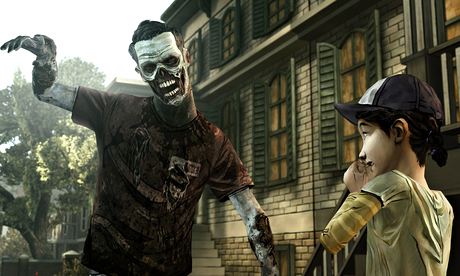
"All the world's a stage, and all the men and women merely players." It's a phrase so familiar that it's hard to remember how rich the metaphor is. Shakespeare returned to the thought many times. What if this world were just a painted set? What if all the events of our lives were merely the motions of a poor player? There's a wryness to this thought. It puts us in our place.
Of course, plays were the great art form of Shakespeare's age – and popular art forms inform the way people think about their lives. As novel-readers, we might talk about entering "a new chapter" of life, or of "turning the page" on a relationship. As cinema-goers, we might consider who'd be in our "end credits" or label ourselves a "supporting actor" in someone else's story. What about video games? They're the biggest entertainment medium in the world, and growing. If all the world were a game, what might we learn from that?
Firstly video games, in a way that might please the conservative-minded, frequently reward hard work. They often contain a phase called "grinding" – repeatedly doing the same activity to accumulate small rewards. You fight weak enemies to improve your strength, repeatedly harvest crops to raise money, practise simple spells to increase your magical ability. Only when you've spent hours mastering the basics do you get to do the cool stuff.
This is a better metaphor for how people really achieve success than cinema's truncated "montage sequence" or reality TV's "instant makeover". It's a rather useful, if somewhat mechanical, way of thinking about how to live well: decide on a goal and work hard until you've done it. So much so that one blogger has even penned a very popular gaming-like "strategy guide for life".
It's this thought that is partly behind the "gamification" movement; the various attempts to turn elements of life, from exercise to reading to good mental health practices, into games. The Fitbit suite of health products award "badges" for achieving health goals and show gamelike "progress bars" to let you know how far you've gone towards your "next level".
It is a metaphor that leaves some things out, though. In many games everyone starts out equal, and it really is only your hard work that determines success. But perhaps this encourages us to overlook the fact that in life we don't all start out with the same resources, skills or opportunities.
Games metaphors have an answer for that, though: writer John Scalzi has suggested that being a straight, white man is like playing the game of life on the "easy" setting.
If they weren't so busy being appalled by a few violent games, the right wing might also applaud the fact that many games emphasise choice and personal responsibility. Where novels or plays are linear – however many choices the hero thinks she has, only one thing actually happens – a game can explore the web of possible outcomes of your decisions. Thinking about life in this way can be both overwhelming ("This choice could change everything!") but also paradoxically comforting. In games, making the right choice is often a matter of luck; it's only when we get further on in a game like The Walking Dead that we can see whether the choice we made about whom to sacrifice or whom to save was a good one. How easy life would be if we could just go back and try again.
In this way, games have something to say about the immediacy of life. Sometimes, in life, we get a precious "do-over", but often we don't. Some games demand a split-second decision that cannot be attempted again. I write as someone who's frequently shouted at some console: "No! I didn't mean to shoot him, I wanted to shoot the other one!" Such is the life of the not-very-talented gamer. And indeed, in a less homicidal sense, such is life in general. Many philosophers have remarked on the "nowness" of life – whether you do something or refrain from doing, your life is going on right now. In games and in life, even making no choice is making a choice and all those decisions are part of life, and of the game.
Video games don't necessarily set out to tell us something about life. Some do; the simulation game The Sims rather shockingly mirrors back to us the materialism of consumer capitalism, as well as making attempts to depict the benefits of more numinous values like friendship or learning. But in the way they're constructed, they tell us about our illusions and our fears, our fantasies and our desires.
And video games are probably already influencing our thinking more than we know. If all the world's a game, it's more playful and more goal-oriented, less important but more filled with personal meaning. Now, where's the Shakespeare of game-making to write about it?

